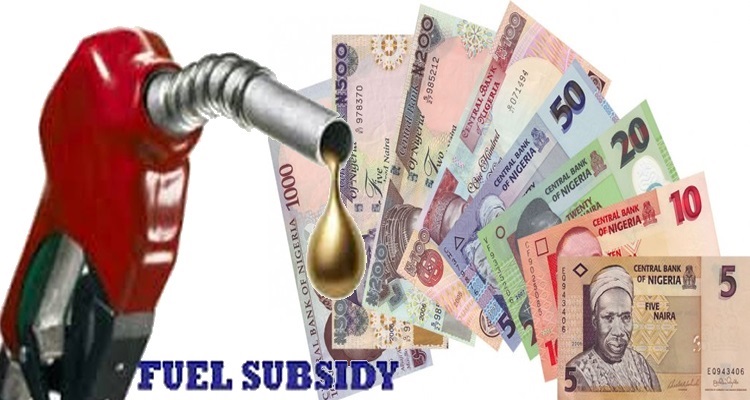Fuel subsidy: More dialogue to tame a national emergency
It is not an exaggeration to state that the Federal Government is presently at a cross roads with respect to the political economy of fuel subsidy in the country. According to trending aspects of the matter, to remove it or otherwise seems to be less of an issue than the repercussions from any direction it […]

Fuel subsidy
It is not an exaggeration to state that the Federal Government is presently at a cross roads with respect to the political economy of fuel subsidy in the country. According to trending aspects of the matter, to remove it or otherwise seems to be less of an issue than the repercussions from any direction it chooses. Either way, the government is faced with the choice between the rock and a hard surface. It therefore needs to play the brinkmanship of fostering a damage control dispensation, given the various issues at stake in the polity. The situation demands a resort to intensified dialogue with all stakeholders participating, as a national economic emergency of sorts is before the country. This is not the prognosis of a prophecy of doom, but the zero sum of the challenge facing the country.
As is public knowledge, the government seems to have settled for the removal of fuel subsidy on Premium Motor Spirit (PMS) or petrol in common parlance) by June this year, which is barely five months away from today. This means that the exit of fuel subsidy and by implication the padding of petrol price at the present price of N165 per litre for Nigerians, is as good as having taken place already, the sundry assurances by various government agencies notwithstanding. Hence, except a landmark dispensation in the country’s political economy occurs, petrol prices from June this year will rise to the region of N340 per litre (as announced by the Group Managing Director of the NNPC in November 2021), or hopefully lower depending on the outcome of negotiations from the envisaged dialogue between government and stakeholders. And given the history of fuel price hikes in the country, it will not be a tea party for both the government or the citizenry, when the time comes.
In response to the government’s plan, the country’s organised labour front has challenged the proposed removal of fuel subsidy and has given the government some conditions that must precede the action by the latter. Key labour unions in Nigeria comprising the Trade Union Congress, Nigeria Labour Congress, Petroleum and Natural Gas Senior Staff Association of Nigeria and others, who attended the Annual General Meeting and inauguration of the newly elected National Executive Committee of the Independent Petroleum Marketers Association of Nigeria in Abuja settled on the following conditions among others, that must precede the removal of the subsidy on petrol.
Firstly, is that the government should put all the existing refineries in working order. Nigeria has a total of five refineries across the country of which four are owned and managed by the government, and one by Niger Delta Petroleum Resources Limited (NDPR) a privately owned company. Nigeria is the only OPEC member country that imports more than 90 to 95 per cent of refined petroleum products for consumption. None of the government-owned refineries is functioning, yet in the past 10 years alone, the government has wasted about $9.5bn for turnaround maintenance of the moribund refineries.
Secondly is that, the government should facilitate the development of new modular refineries, like the NDPR initiative in order to address the wide gap between demand and supply of petroleum products in the country and export considerations. And thirdly, the government should appoint proactive committees that will monitor the implementation of these recommendations by labour, as the government has demonstrated its lack of capacity to be trusted with respect to implementation of sensitive national projects.
The issue now is that while these demands by labour may be altruistic, their feasibility remains in doubt as even in better times, the government is not known to act with pro-activeness. With labour placing these demands as conditions precedent to avert industrial action over subsidy removal, Nigeria may be in for it from June when the bell will toll, as labour may call out workers out for widespread industrial action of picketing and strikes.
This is where the government needs to step down from its high stool and engage the wider Nigerian society in meaningful dialogue on the way forward. So far that has not taken place, even as the country is proceeding towards its rendezvous with the envisaged social turbulence. Easy to recall by older Nigerians is the instance in 1995 when the military regime under General Sani Abacha was faced with a similar challenge of fuel subidy removal and had to launch the Petroleum Trust Fund (PTF), of which the current Head of State, Muhamadu Buhari was its Executive Chairman. If such a dispensation of consensus between government and the wider society was feasible under a military regime with its supposed draconian orientation, there is no reason why it should not be contemplate under a democratic government. This is especially so given that one of the conditions given by labour is the establishment of proactive committees to monitor government compliance with the conditions precedent for averting the proposed strike.
In the circumstances, labour may also need to back pedal to move the country out of the emergent quagmire, as even if the government may be blamed for leading the country into the present cul de sac, the challenge now goes beyond blame sharing, but demands national deliverance.
